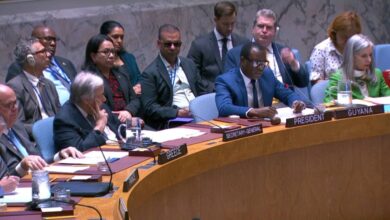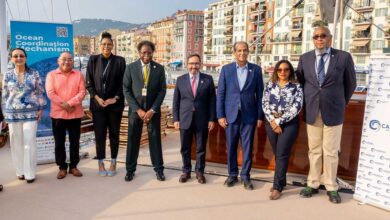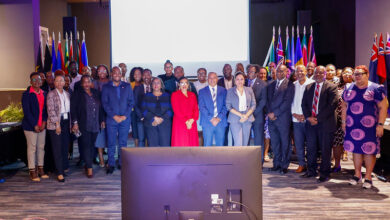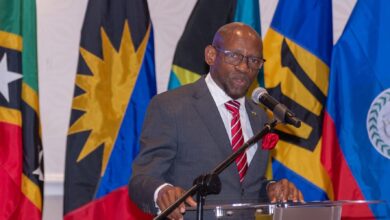The Post-2015 Development Agenda
From 25-27 September 2015, the United Nations will convene a Summit for the adoption of the Post-2015 Development Agenda; and approximately one hundred and thirty-one (131) Heads of Government/State have, to date, confirmed their attendance. The Summit will consist of plenary debates and a series of round tables.
The Post-2015 Development Agenda will succeed the Millennium Development Goals as the new framework for transformative action towards sustainable development at the national, regional and international levels.
The Agenda will consist of four (4) main components namely:
- A Declaration;
- The Sustainable Development Goals;
- Means of Implementation; and
- Review and Follow-up

The Agenda will therefore be a guide for the operational activities for development and for the mobilization of resources for development.
The Post-2015 Development Agenda will build on the lessons of experience from the implementation of the MDGs in an effort to maintain continued focus on poverty eradication and reduction of inequality –
- unlike the segmented approach of the MDGs, it will be comprehensive, integrated and horizontal bringing together the economic, social and environmental dimensions of sustainable development;
- unlike the North-South agenda of the MDGs, the new agenda is anticipated to be universal and applicable to all countries;
- unlike the basic needs approach of the MDGs, it is anticipated to be transformative with a stronger focus on people-centred and inclusive development;
- it will incorporate the means of implementation to support the agenda, a missing component in the MDGs; and
- it will establish a robust review and follow-up platform, unlike the ad-hoc nature of the review and follow-up to the MDGs.
Complementarity between the Post 2015 and SIDS Development Agenda
While the Sustainable Development goals will form the core of the Post-2015 development Agenda, other outcomes from major conferences and summits, including the S.A.M.O.A. Pathway, will form an integral part of the Agenda.

The Caribbean Community (CARICOM) Member States maintain that the Post 2015 Development Agenda should be holistic and that significant attention should be given to adequately and effectively address the unique sustainable development challenges of small island developing states and low lying coastal states in building economic, social and environmental resilience. In pursuing this task CARICOM Member States are ensuring that the ambitions outlined in the S.A.M.O.A. Pathway are fully addressed.
CARICOM Member States emphasize the importance of strengthening synergies between national, regional and international processes for the alignment of the sustainable development goals of the Post-2015 Development Agenda and the commitments under the S.A.M.O.A. Pathway. Whereas the MDGs did not adequately reflect national planning processes, it is generally accepted that the sustainable development goals must be adapted to national circumstances and regional priorities and objectives. CARICOM Member States therefore call attention to the need to ensure that the Post-2015 Development Agenda addresses the linkages from the national to the global levels.
The CARICOM Member States underscore that the successful implementation of the new agenda will depend on a robust but flexible framework for the mobilization and provision of financing and other means of implementation as well as a robust framework to support both national development policy-making and monitoring progress and achievements at all levels. The CARICOM Member States stress the critical importance of high quality reliable and timely data and analysis. They specifically call for a dedicated stream of support for strengthening national statistical systems and national statistical offices. They also call for strengthening the statistical capacity at the regional and international levels.
The CARICOM Member States had emphasized that a harbinger of ambition for the Post-2015 Development Agenda will be a successful Third International Conference on Financing for Development (FfD). That Conference took place on 13 to 16 July 2015, in Addis Ababa, Ethiopia and 193 countries agreed on its outcome document, the
The outcome document of that Conference, held on 13 to 16 July , the Addis Ababa Action Agenda was endorsed by representatives of 193 countries.
See also:
Countries reach historic agreement to generate financing for new sustainable development agenda
Reaction to the agreed Addis Ababa Action Agenda on Financing for Development by PSI






